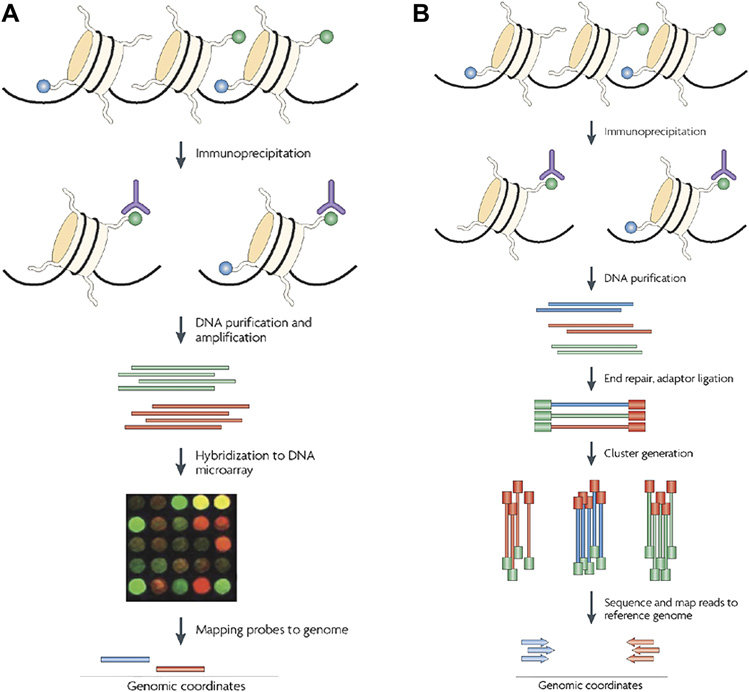Epigenetic modifications refer to heritable genomic alterations resulted from DNA modifications or chromatin structural changes, rather than DNA sequence changes. With the potential of altering DNA accessibility and chromatin organizations, epigenetic modifications play important roles in the regulation of gene expression.
In general, there are two types of epigenetic modifications, which often work collectively to regulate gene expressions:
The phenomenon of epigenetic modification universally exists in eukaryotes, especially in plants. So far, there are over one hundred epigenetic regulators identified in the plant system. Noticeably, accumulating evidences have shown that epigenetic regulations contribute largely to the phenotypic diversity of plants, and more importantly, in the regulation of plant growth, development, and response upon environmental stimulations. Therefore, detection and characterization of epigenetic modifications are critical aspects for the study of plant biology.
Lifeasible is a leading plant biotechnology company with a long history in plant epigenetic research. We proudly provide our customers with multiple cutting edge technologies for the detection of epigenetic modifications, including:
 Figure 1. Illustrations of ChIP-based methods, ChIP-chip (A) and ChIP-seq (B)(Ku, Naidoo et al. 2011).
Figure 1. Illustrations of ChIP-based methods, ChIP-chip (A) and ChIP-seq (B)(Ku, Naidoo et al. 2011).
Lifeasible is devoted to providing our customers with services of the highest quality. Our experienced scientists and experts are always happy to help you with project designing, experimental optimization, data interpretation, technical consulting and so on. Welcome to contact us for questions, inquiries or collaborations.
Reference
Lifeasible has established a one-stop service platform for plants. In addition to obtaining customized solutions for plant genetic engineering, customers can also conduct follow-up analysis and research on plants through our analysis platform. The analytical services we provide include but are not limited to the following:
Get Latest Lifeasible News and Updates Directly to Your Inbox